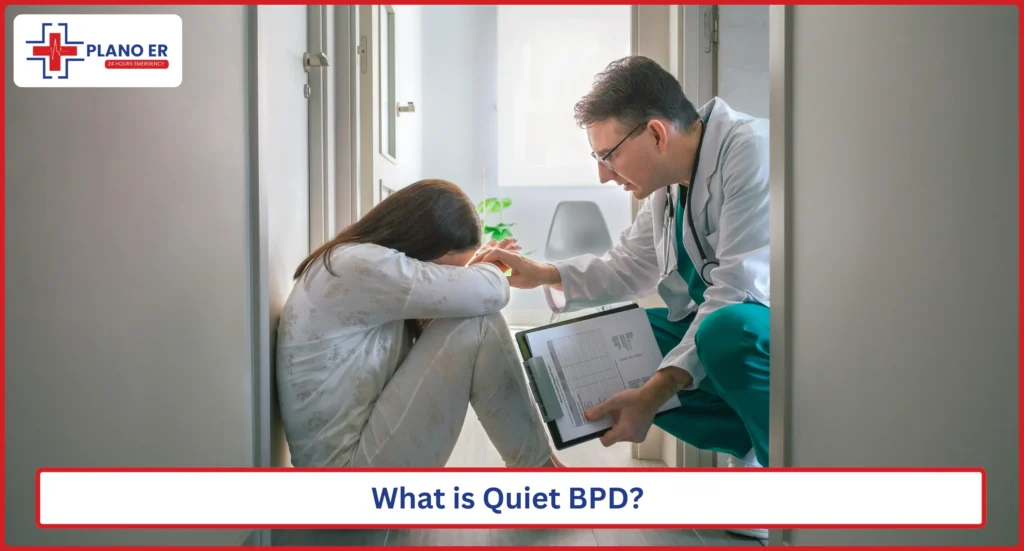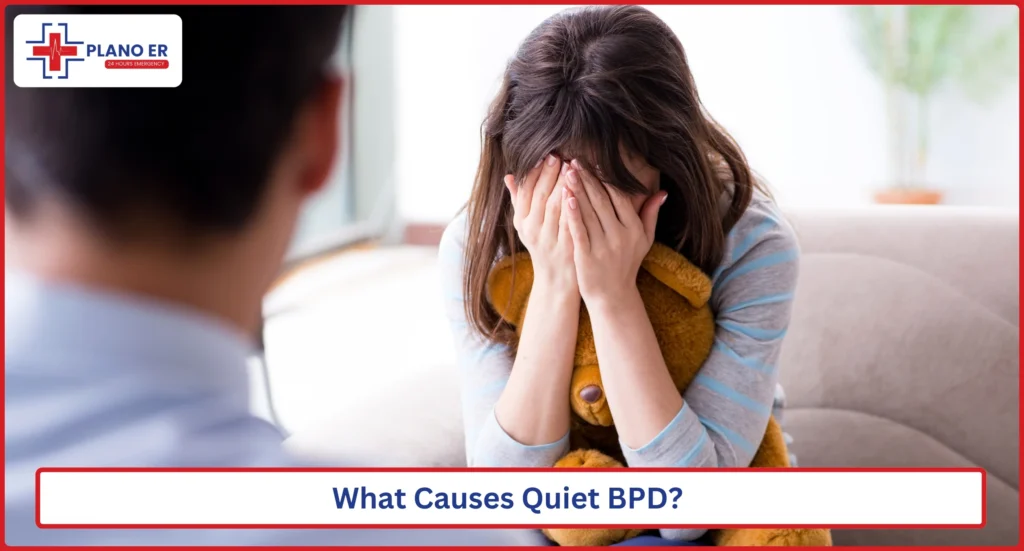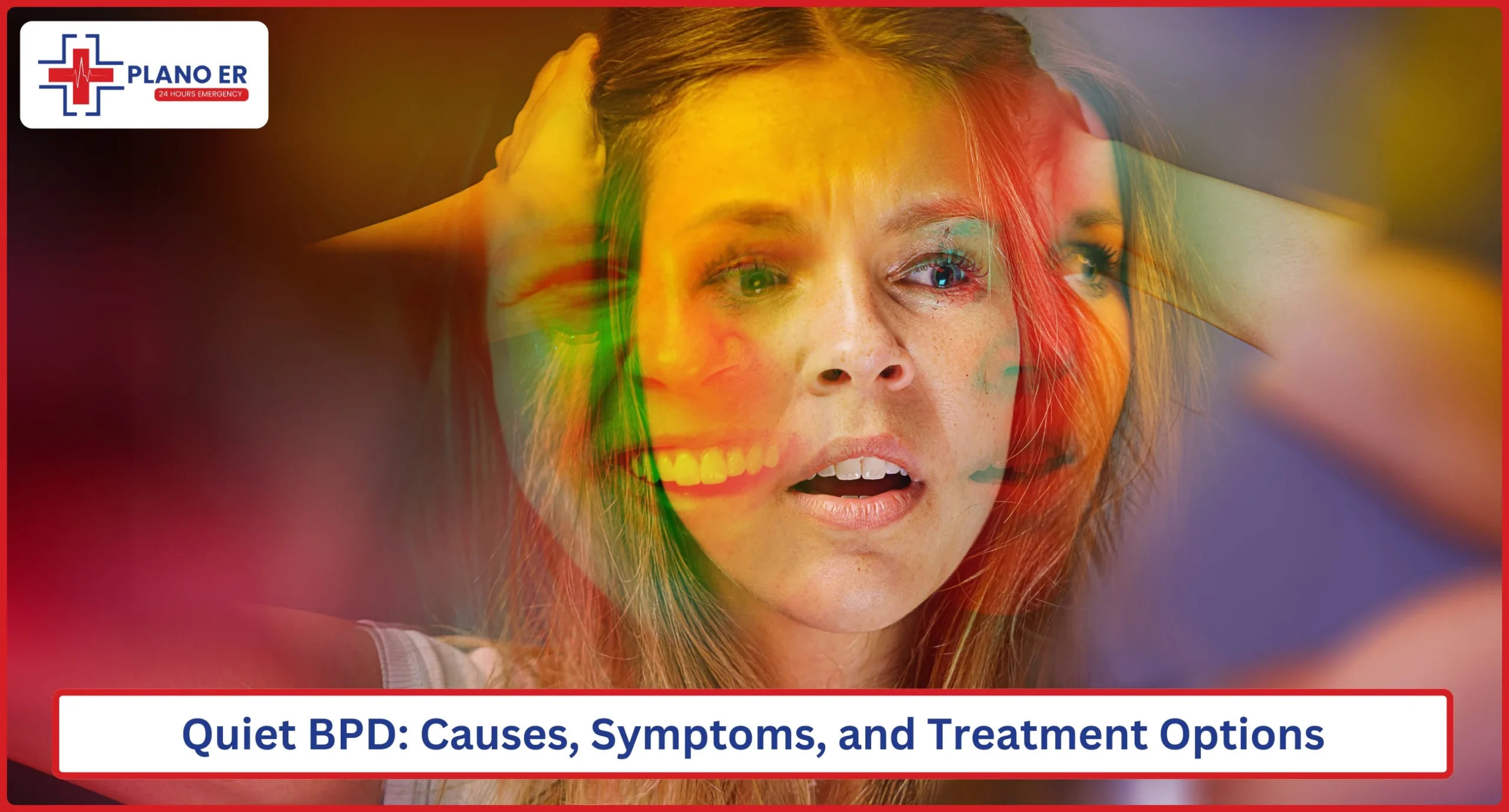If you’re dealing with emotional distress internally and not able to express the emotional chaos outwardly, then you could be suffering from quiet BPD. It is a category of borderline personality disorder, but slightly differs from it, as the person does not experience classic emotional outbursts but deals with internal, intense interpersonal conflicts that are hidden.
The main difference between quiet BPD and BPD is that the person feels pain internally only and does not express their feelings. Thus, it affects their mental stability and mood control.
It is essential to understand its causes so that you can protect yourself and your loved ones from such a mental condition.
In this blog, we’ll break down all the necessary information about quiet BPD, including its causes, symptoms, and effective treatment options.
What is Quiet BPD?

Quiet BPD is also known as high-functioning BPD. In such a condition, a person may stay calm and stable, but internally, they struggle with intense mental distress. Instead of yelling and blaming others, they devalue and blame themselves.
Quiet BPD is hard to identify as it is hidden, so if the diagnosis is delayed, then treating it can become more difficult.
Quiet BPD Symptoms to Watch Out For
Since it is hidden so quietly, BPD can go undetected for many years. So it is essential to know its early signs so that you can identify it before the pain gets intense.
Below are a few common quiet BPD signs:
- Avoids conflicts by emotionally shutting down
- Extreme mood shifts
- Emotional breakdown in private
- Does a lot of self-blame
- Concerned about pleasing people
- Feeling emotionally numb
- Learn about Quiet BPD Splitting
This condition is described as a quiet BPD meltdown, where a person blames and abruptly devalues themselves. In such a condition, the person admires someone else and feels like a failure. Moreover, instead of communicating, they keep their emotions hidden.
What Causes Quiet BPD?

There could be various causes of quiet BPD. Most commonly, it happens due to childhood trauma or genetics. A child growing up in an abusive environment tends to suffer from quiet BPD.
It can also be caused by the surroundings, such as instability in relationships or as a result of bullying.
People suffering from quiet BPD have often witnessed punishment and rejection when they express their internal feelings, which is why they keep hiding their feelings and eventually suffer from quiet BPD.
Quiet BPD Treatment Options
People suffering from quiet BPD can be treated by implementing the right treatment strategy. There are many possible treatment options available. A few of the most common options are listed below.
Dialectical Behavior Therapy (DBT)
This therapy helps them balance their emotional regulation and work on interpersonal skills, making them capable of managing their internal emotions.
Cognitive Behavioral Therapy (CBT)
This therapy helps people find their challenges and find their identity. It helps them work on mental disabilities like distorted thought patterns.
Medications
Directly, no medicines help in overcoming quiet BPD, but through doctor-prescribed drugs, you can minimize depression and anxiety or stabilize your mood.
Communication Through Support Groups
Try connecting and communicating with people who can help you overcome your guilt or internal weakness.
Final Verdict

Quiet BPD may be harder to detect, as someone who is not visibly struggling might be fighting from a lack of self-esteem. Such a person requires more care, attention, and mental support.
Whether you’re suffering from quiet BPD or want to learn more about this condition, the first step is self-awareness and knowing why it is caused. Healing is important, and you’re not alone in this battle.
Contact us now at the Plano ER, where our 24/7 availability is ready to guide you to the right therapist.
Frequently Asked Questions (FAQs)
What are the different types of BPD?
The different types of BPD are as follows:
- Impulsive BPD
- Self-Destructive BPD
- Quiet BPD
- Petulant BPD
What triggers BPD?
BPD is often triggered by rejection, failure, punishment, and disagreement.
How does a suffering from quiet BPD act?
A person suffering from quiet BPD might seem normal from the outside, but internally they might be suffering from constant mood swings, comparison, failure, and extensive self-blaming.
Is quiet BPD different from BPD?
Quiet BPD is a subtype of BPD, and both require equal attention. The main difference is that a person suffering from BPD expresses their emotions and faces constant emotional challenges externally, but a person suffering from quiet BPD, might not express their feelings and keep them hidden, making it hard to detect.






